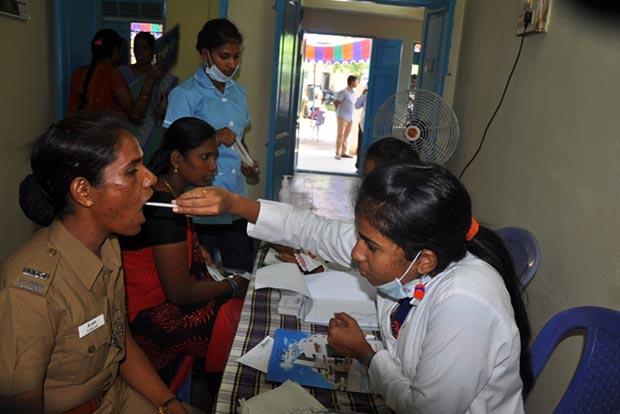Begin typing your search...
Over 60 per cent of police force suffers from psychological stress
A medical camp, conducted for police personnel and their families in the city, confirmed their sorry state of psychological health. Over 60 per cent of those who attended the camp complained of psychological stress, leading to insomnia, hypertension and diabetes, said doctors who examined them.

Chennai
Most of those in the age group of 45 to 55 had hypertension while many were diagnosed with diabetes. Those who had been earlier diagnosed with hypertension had not followed up on the treatment, their symptoms having been aggravated. Apart from hypertension and diabetes, policemen, especially traffic policemen, also had varicose veins and respiratory ailments. “Those who complained of routine sleep deprivation and unhealthy eating habits had also been diagnosed with hypertension,” said Dr Saravanamurthy of Stanley Medical College, who attended the camp.
The basic medical camps, however, had no radiological screening facilities. “We have not screened them for problems, like fatty liver, as it needed ultrasonography to get a better diagnosis. However, we asked them about probable symptoms. We also have not come across anyone with severe alcoholism,” he added. Traffic policemen were said to be more affected by long hours of standing and exposure to dust and vehicle smoke. Most of them had respiratory ailments and chronic respiratory allergies. “Most of these policemen have lifestyle diseases. Fortunately, none of them had any serious health issues. But they need to be more careful about hypertension and diabetes,” he added.
About 6,000 police personnel and their families attended the medical camps at various centres in the city, hospitals in each locality being roped in for the purpose. The camp only looked at the general health parameters of the policemen.
“The checking at the camp was free. But when doctors suggest follow up treatment we will have to go to other hospitals and pay for treatment, which many policemen don’t do, and that worsens their health. Those in the city can go to the police hospital at Egmore, but others living far away will have to depend on private hospitals for advanced treatment, which is expensive,” a police officer told DT Next.
Visit news.dtnext.in to explore our interactive epaper!
Download the DT Next app for more exciting features!
Click here for iOS
Click here for Android
Next Story



